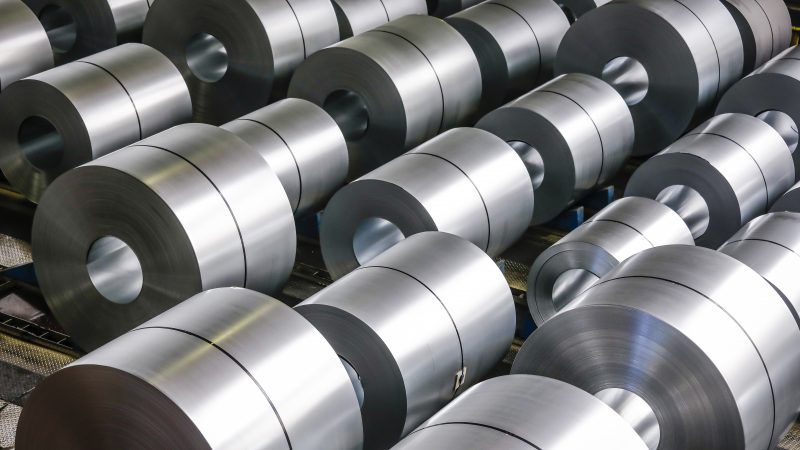Steel Company CEO Says Everyone Else Should Have To Pay for Trump's Tariffs, but Not Him
Robert Wetherbee says steel tariffs might force his business to shutter. But instead of asking for the tariffs to be lifted, he wants special treatment.

As the head of a Pittsburgh-based metal fabrication and manufacturing firm, Robert Wetherbee has firsthand experience with the consequences of President Donald Trump's trade policies.
They've worked so well, Wetherbee wrote in an op-ed for The Wall Street Journal, that he might have to close his doors.
"Tariffs are blunt instruments and have also harmed many American companies, including my own Allegheny Technologies Inc," writes Wetherbee. "Our Midland [Pennsylvania] plant is hemorrhaging money."
Allegheny Technologies, which employs about 100 people, is the type of company that is especially vulnerable to Trump's tariffs. It imports stainless steel slab from Indonesia and turns it into sheet metal, which it then sells to other manufacturers who incorporate it into car parts, kitchen appliances, and more.
Being in the middle of the supply chain is rough when you're also in the middle of a trade war. Companies like Allegheny Technologies have to pay for Trump's 25 percent tariffs on imported steel, and then have little choice but to pass on that cost increase to their customers. But, as Wetherbee laments, that makes it difficult for a company like his to compete against foreign manufacturers who can make and sell sheet metal without having to account for an extra 25 percent import tax.
Buying American doesn't work, either, since U.S. steel is more expensive. One domestic supplier, Wetherbee writes, "quoted us a price for 60-inch slabs that was so high, the raw materials would have cost us more than we charge for the finished product."
Wetherbee's story is a perfect illustration of why tariffs fail in principle as well as why these specific ones have failed in practice.
Given all that, you'd probably expect Wetherbee to be a critic of Trump's trade policies.
Not so fast. Wetherbee's purpose in penning an op-ed for The Wall Street Journal is to ask for special treatment. He wants everyone else to continue paying Trump's tariffs, as long as his company gets a break—an exemption from having to pay the tariffs that Wetherbee says he still supports.
Give me a break.
It's true that the Commerce Department has set up a process for awarding tariff exemptions—technically, they are called "exclusions"—but the process is, unsurprisingly, a bureaucratic mess. It is opaque and unaccountable, with little recourse for companies whose requests are denied. Even such rudimentary details as which Commerce Department officials are responsible for making final determinations, or the metrics by which those decisions are made, remain a secret.
At best, the combination of tariffs and tariff exemptions gives the Commerce Department the power to pick winners and losers. At worst, the process allows for serious cronyism. As CNN reported last year, large companies such as U.S. Steel are actively trying to block many exemption requests made by smaller business—because U.S. Steel is better able to absorb the added cost of tariffs than, say, a small metal fabrication business with 100 employees.
All of this, of course, is the entirely predictable result of giving the federal government greater control over trade and expecting federal officials to fairly and correctly decide which economic levers to yank.
Seeking special treatment from the government is a time-honored tradition, of course. However, it is surprising to see the editorial board of the usually pro-market Wall Street Journal give a megaphone to such a blatant call for cronyism.
At least there's one good thing to come from this: There is no better snapshot of the current state of Trump's trade policies than a CEO proclaiming that the president's tariffs are great while simultaneously begging to be saved from them.


Show Comments (40)